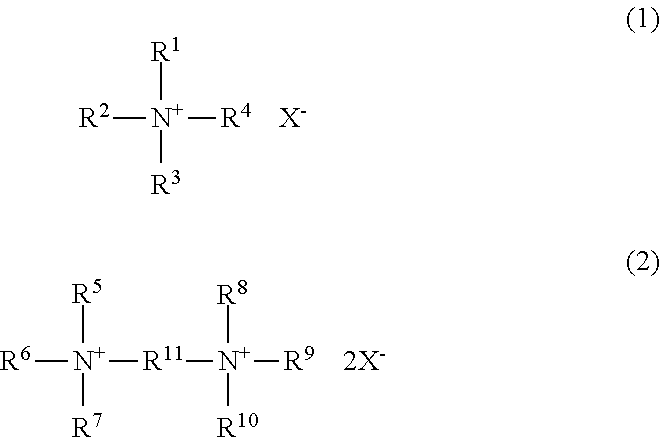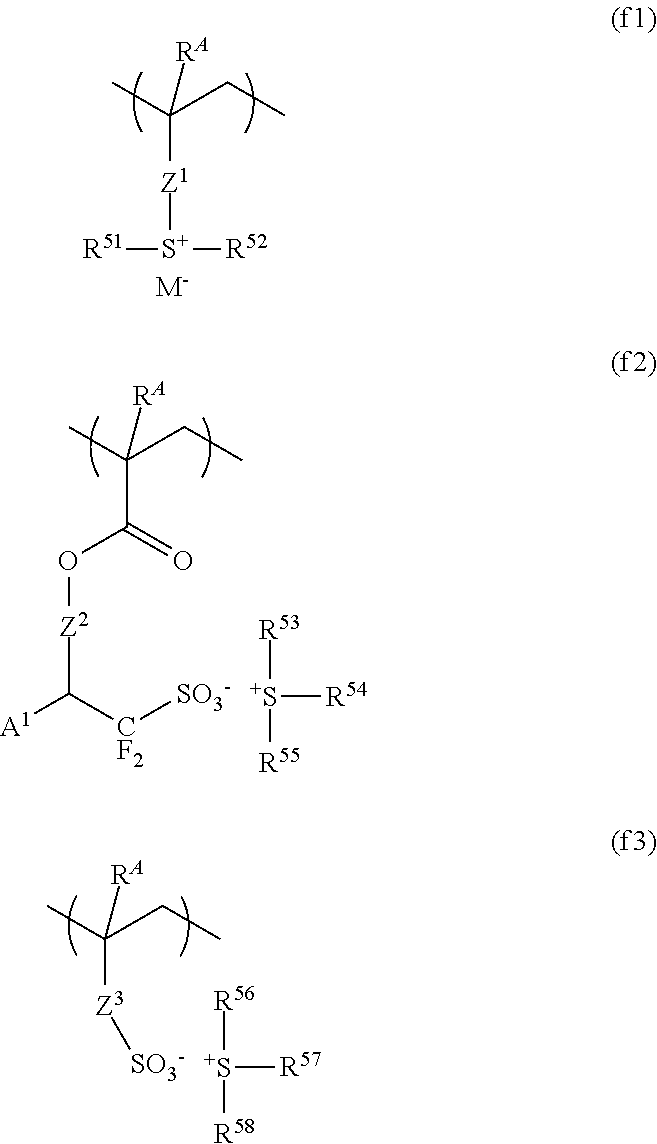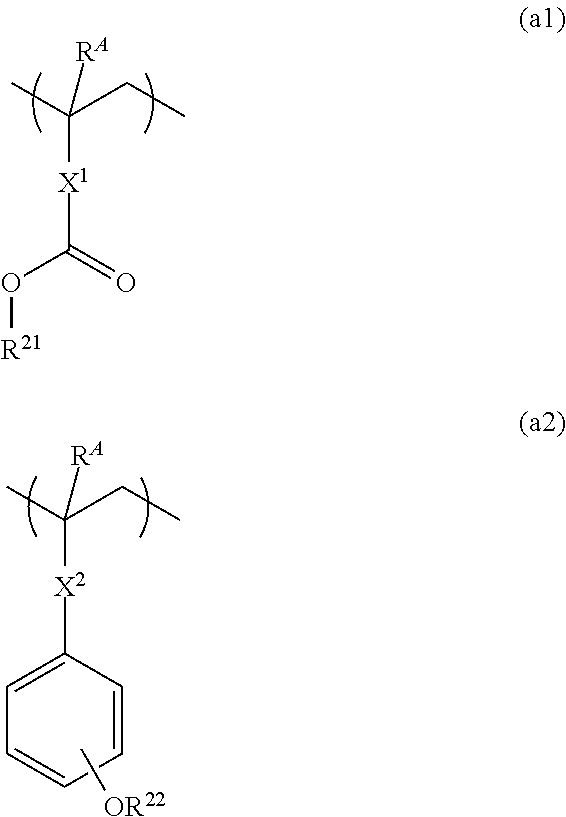Chemically amplified resist composition and patterning process
a technology of applied in the field of chemically amplified resist composition and patterning process, can solve the problems of image blur, non-uniformity of resist film, sensitivity drop, etc., and achieve high sensitivity, high resolution, and high dissolution contrast
- Summary
- Abstract
- Description
- Claims
- Application Information
AI Technical Summary
Benefits of technology
Problems solved by technology
Method used
Image
Examples
example
[0158]Examples of the invention are given below by way of illustration and not by way of limitation. The abbreviation “pbw” is parts by weight.
[0159]Quenchers 1 to 12 in the form of quaternary ammonium iodide, quaternary ammonium dibromoiodide, quaternary ammonium bromodiiodide or quaternary ammonium triiodide having the following structure were used in resist compositions. Of Quenchers 1 to 12, some were purchased from Tokyo Chemical Industry Co., Ltd. or Sigma-Aldrich and the remaining were prepared by neutralization reaction of an ammonium hydroxide with hydriodic acid.
[0160]
synthesis example
[0161]Synthesis of Base Polymers (Polymers 1 to 3)
[0162]Base polymers were prepared by combining suitable monomers, effecting copolymerization reaction thereof in tetrahydrofuran (THF) solvent, pouring the reaction solution into methanol for crystallization, repeatedly washing with hexane, isolation, and drying. The resulting polymers, designated Polymers 1 to 3, were analyzed for composition by 1H-NMR spectroscopy, and for Mw and Mw / Mn by GPC versus polystyrene standards using THF solvent.
[0163]
examples 1-1 to 1-16
and Comparative Examples 1-1 to 1-7
[0169]Each of the resist compositions (Tables 1 and 2) was spin coated onto a silicon substrate (which had been vapor primed with hexamethyldisilazane) and prebaked on a hotplate at 110° C. for 60 seconds to form a resist film of 80 nm thick. Using a system HL-800D (Hitachi Ltd.) at an accelerating voltage of 50 kV, the resist film was exposed imagewise to EB in a vacuum chamber. Immediately after the exposure, the resist film was baked (PEB) on a hotplate at the temperature shown in Tables 1 and 2 for 60 seconds and developed in a 2.38 wt % TMAH aqueous solution for 30 seconds to form a pattern.
[0170]The resist pattern was evaluated as follows. In the case of positive resist film, the resolution is a minimum trench size at the exposure dose that provides a resolution as designed of a 120-nm trench pattern. In the case of negative resist film, the resolution is a minimum isolated line size at the exposure dose that provides a resolution as designed...
PUM
| Property | Measurement | Unit |
|---|---|---|
| of wavelength | aaaaa | aaaaa |
| reaction time | aaaaa | aaaaa |
| reaction time | aaaaa | aaaaa |
Abstract
Description
Claims
Application Information
 Login to View More
Login to View More - R&D
- Intellectual Property
- Life Sciences
- Materials
- Tech Scout
- Unparalleled Data Quality
- Higher Quality Content
- 60% Fewer Hallucinations
Browse by: Latest US Patents, China's latest patents, Technical Efficacy Thesaurus, Application Domain, Technology Topic, Popular Technical Reports.
© 2025 PatSnap. All rights reserved.Legal|Privacy policy|Modern Slavery Act Transparency Statement|Sitemap|About US| Contact US: help@patsnap.com



